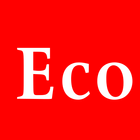
2016-1029 | The Economist-049
介绍: Energy efficiency: Populism tastes best hot
Toasters and kettles are no longer within the EU’s grasp
From The Economist 20161029
Audio:
0:00
EARLIER this year David Coburn, who sits in the European Parliament for the UK Independence Party, a Eurosceptic group, came up with an eccentric argument for l...
介绍: Energy efficiency: Populism tastes best hot
Toasters and kettles are no longer within the EU’s grasp
From The Economist 20161029
Audio:
0:00
EARLIER this year David Coburn, who sits in the European Parliament for the UK Independence Party, a Eurosceptic group, came up with an eccentric argument for leaving the European Union: the quality of his morning toast. He claimed that EU regulation meant toasters had only “the power of one candle or something”, leaving his bread “all peely-wally” rather than nicely roasted. Brexiteers cheered: yet another example of croissant-scoffing continentals meddling with British traditions, such as burning bread to a crisp.
In fact, the EU does not regulate the energy consumption of toasters—and on October 25th it appeared to abandon any plans of doing so. According to internal documents from the European Commission, toasters, kettles and hairdryers are unlikely to be included on a list of new products covered by the Ecodesign Directive, which sets rules on improving the energy efficiency of appliances.
Such rules are wildly unpopular, and not just with grumpy Brits. On its website, the right-wing Alternative for Germany party sells incandescent lightbulbs (which the EU has phased out) as a rather dimly lit protest gesture. Even in Denmark, some newspaper readers were urged to rush out and buy powerful vacuum cleaners “before it’s too late” when the EU included them in the directive two years ago.
But although the commission’s decision will delight Eurosceptics, consumers may be less happy. The Ecodesign Directive makes products more energy-efficient. This means that their appliances—whether fridges, vacuum-cleaners or televisions—are cheaper to run over their lifetime, even if the product is initially more expensive. According to the commission’s latest report, energy consumption for the average product covered by the directive will be around 18% lower by 2020 than it would have been without it. The energy savings are equivalent to around 165m tonnes of oil per year—more than half of Germany’s energy consumption, and half of the European energy-savings target for 2020.
Greener types argue that the commission’s decision not to include more appliances on the list could deprive consumers and firms of up to €10bn ($11bn) of savings by 2030. Apart from failing to regulate toasters and kettles, they also worry that the EU’s more cautious approach could delay the revision of existing standards that have either been overtaken by advances in efficiency or were set too low to start with.
Jean-Claude Juncker, the president of the commission, is not known for backing down easily in the face of opposition. Yet he appeared to be particularly concerned by the backlash against the energy-efficiency policy. This hints at how sensitive the EU has become to populist discontent, which is now fairly mainstream: according to the latest poll Brussels is trusted by barely a third of Europeans. From free trade to migration to household appliances, the EU’s policies seem as appetising as a piece of burnt toast.
Copyright © 2015-2016 Share2China.com | Powered by Flask and MongoDB

